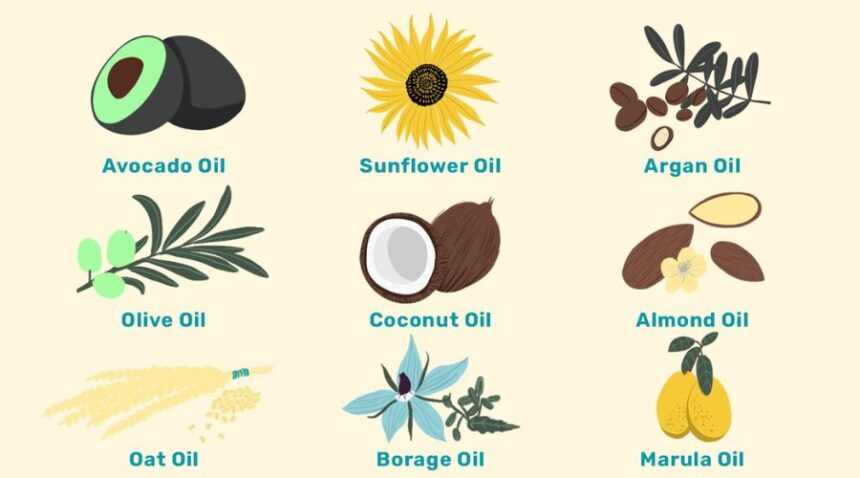For generations, people have utilized natural oils like olive oil, shea butter oil, and coconut oil to moisturize their skin and hair. They have been praised for their antibacterial, protective, and moisturizing properties. These seemingly straightforward compounds have frequently gone unnoticed, even despite the expansion of the contemporary wellness and cosmetics businesses.
However, in the last ten years, they have become more popular as consumers look for reasonably priced, efficient products without additives.
Continue reading to learn how to use them to achieve glowing skin:
1. Coconut Oil
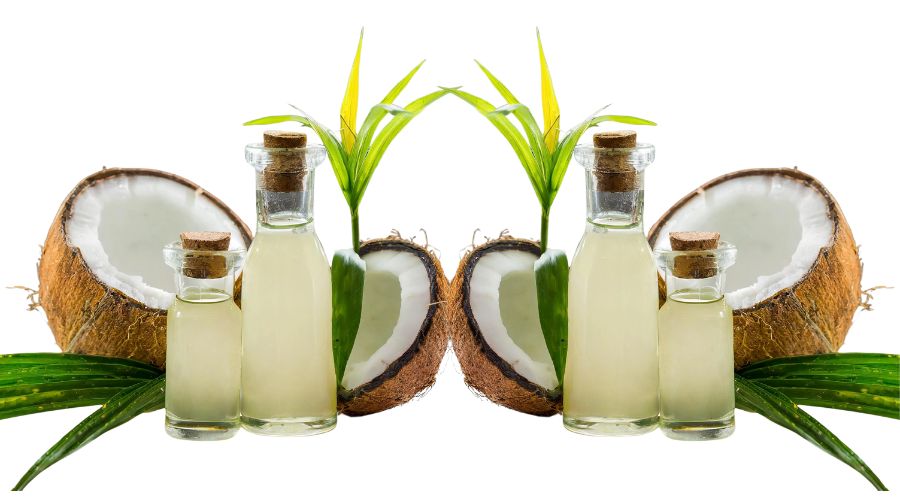
Coconut oil is known to provide numerous health benefits, such as those derived from vitamins E and K and antifungal and antibacterial qualities. It is also readily absorbed into the skin. The one significant exception? Coconut oil, like cocoa butter, is prone to outbreaks. Most people can benefit greatly from using coconut oil, but if you have oily skin and are prone to acne, you shouldn’t use it.
According to one study, coconut oil moisturized skin more effectively than olive oil when used as a carrier. Search for unrefined, cold-pressed coconut oil for your face or skin care products.
2. Olive Oil
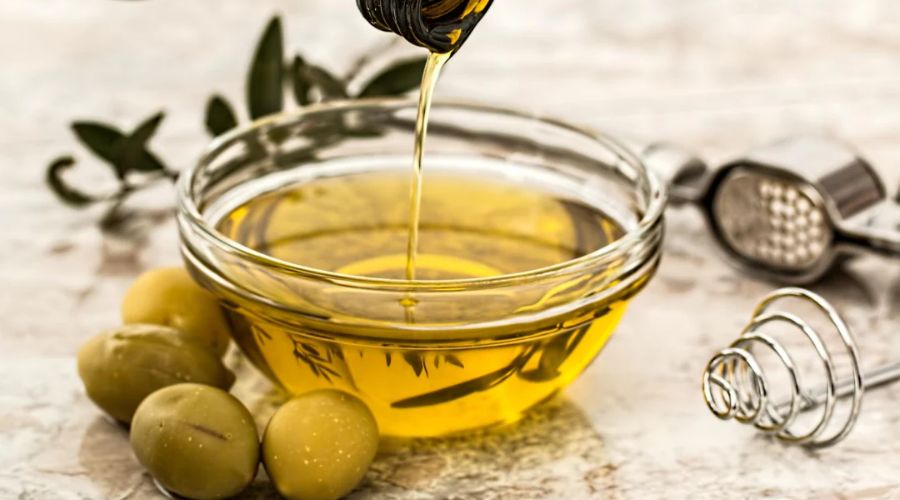
Olive oil usually doesn’t cause allergic reactions, but for optimal effects, make sure to get the extra-virgin type. Vitamins A, D, E, and K are found in olive oil, and certain studies provide scientific proof of its potential as a moisturizer.
Its thick consistency makes it an excellent option for an all-body application. To get clean without drying up your skin, try using a bar of soap or an olive oil cleaner.
However, olive oil might not be the ideal choice for those with skin prone to acne. Because they don’t clog pores, other non-comedogenic oils, including jojoba, safflower, and sunflower oils, are preferable options for acne sufferers.
3. Sunflower Seed Oil
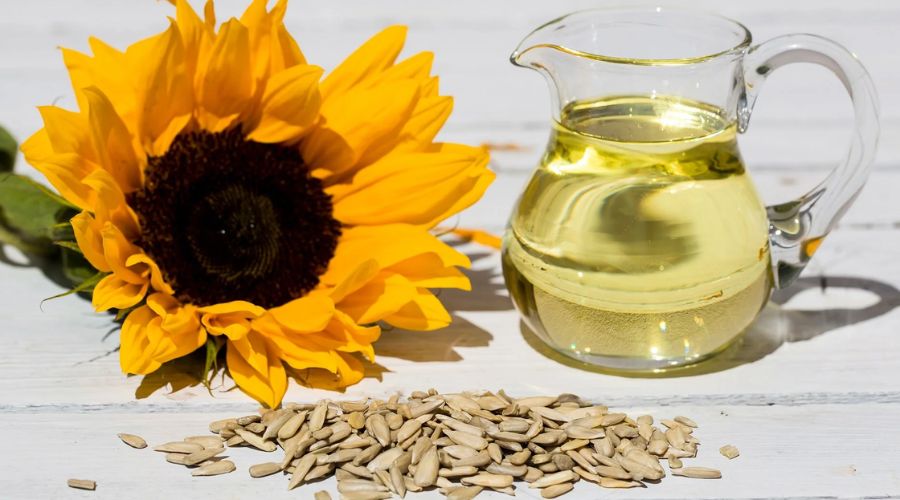
Due to its accessibility, high vitamin E content, and ease of skin absorption, sunflower seed oil for healthy skin is a great option for a natural moisturizer. According to one study, sunflower oil did not trigger or worsen atopic dermatitis, a kind of eczema, as much as olive oil did, and it also provided superior protection for the skin’s barrier in newborns.
4. Shea Butter
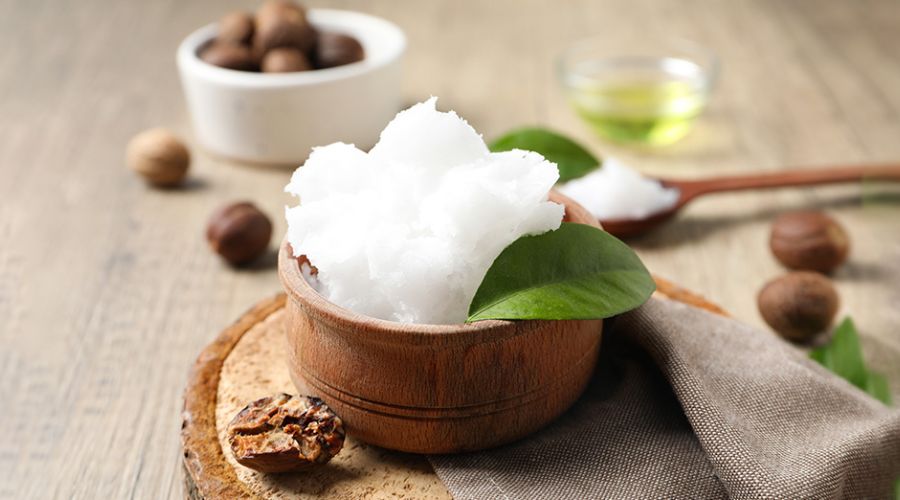
Shea butter, which is made from the nuts of the African shea tree, is a tallow-like substance that is typically found in a solid state but melts at body temperature. It is occasionally used as a moisturizer and hair product, and she hasn’t observed any allergic reactions in her patients. For a smoother application texture, unrefined organic shea butter can also be mixed with coconut or olive oil.
5. Jojoba Oil
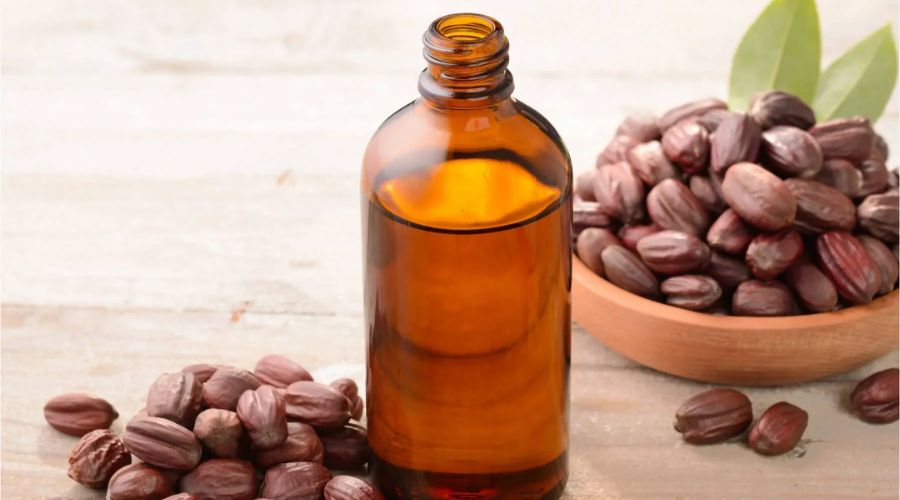
Native American cultures have utilized jojoba oil for healthy skin, which is produced from its seeds for medical purposes throughout Mexico and the American Southwest. Among other skin benefits, researchers have discovered that jojoba oil may have anti-inflammatory and wound-healing properties.
Conclusion
Natural oils like coconut, olive, or sunflower can greatly enhance your hair and skin care regimen. These oils can be an affordable substitute for common skin care products and are frequently less likely to trigger allergic reactions. See your doctor for advice before incorporating them into your skin-care regimen, particularly if you are expecting a new mother. For more beauty secrets, visit www.gurucent.com.
FAQs
Q1. Which type of natural oil is ideal for skin care?
Ans: Because of their high oleic acid content, which makes oils thicker and richer to trap moisture, coconut oil, marula oil, and avocado oil are particularly beneficial. Argan oil also contains oleic acid, which can help regulate sebum production so that moisture doesn’t evaporate from the skin too soon.
Q2. What is the ideal oil for Indian skin types?
Ans: Jojoba oil is a fantastic ingredient for all of your skin and hair moisturizing needs. Jojoba oil, rich in antimicrobial, anti-inflammatory, and non-toxic qualities, cleanses the scalp of excess sebum, leaving hair feeling silky and lustrous.
Q3. Which oil makes black skin more radiant?
Ans: Bergamot is one of the most distinctive oil profiles. In addition to its delightful zesty aroma, bergamot oil is a great source of vitamin C, which helps with skin issues including hyperpigmentation and dark spots.



